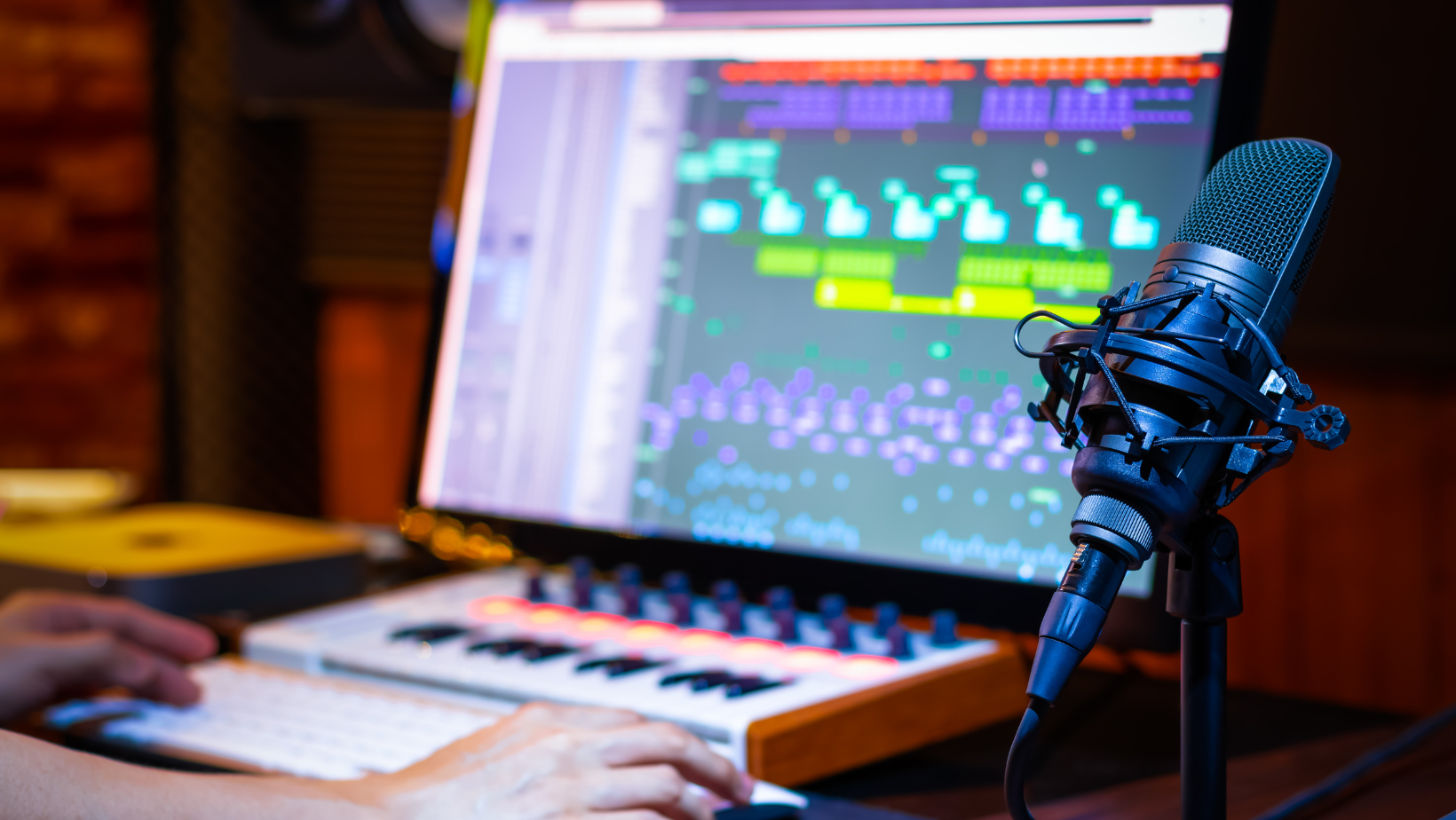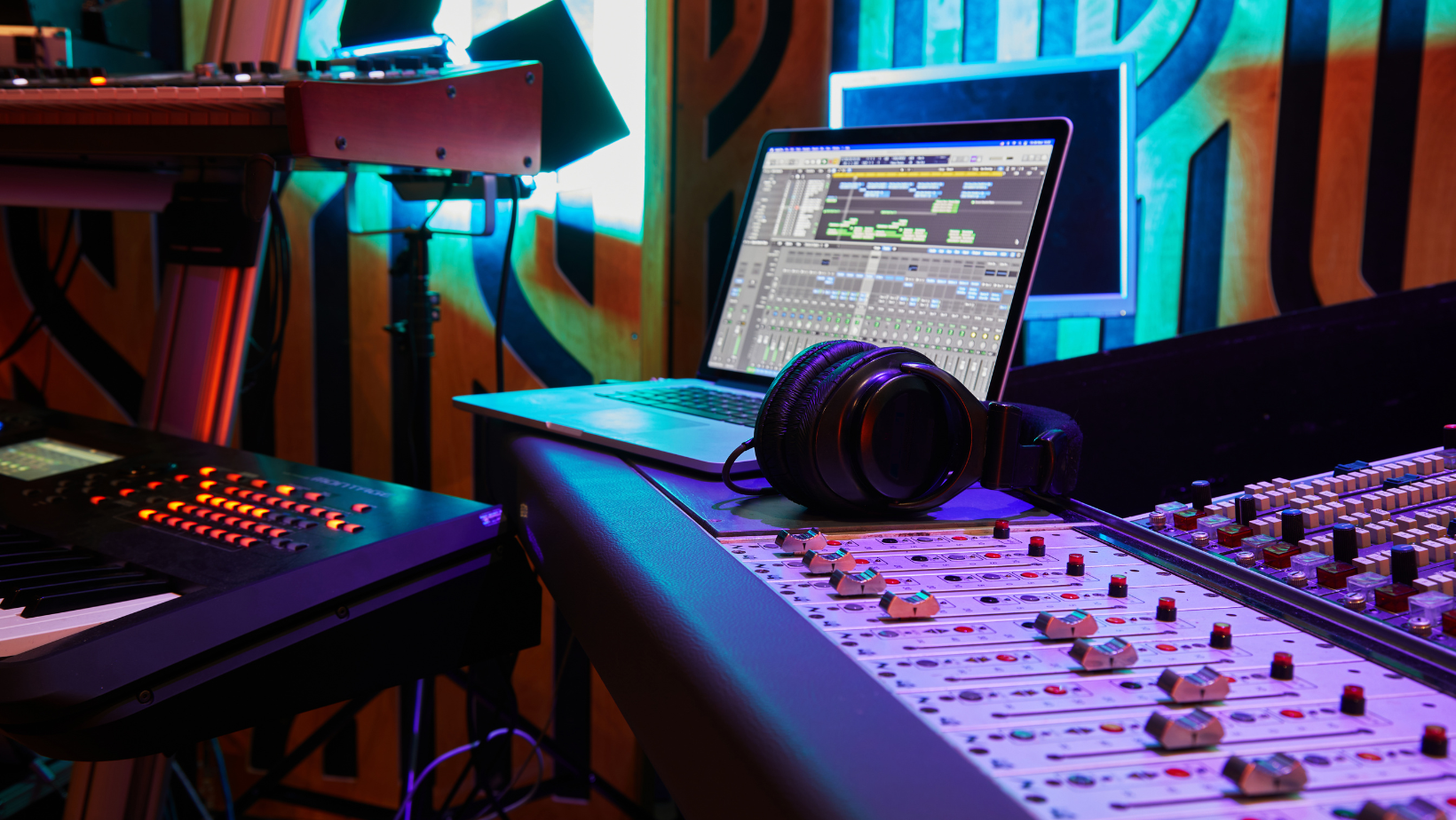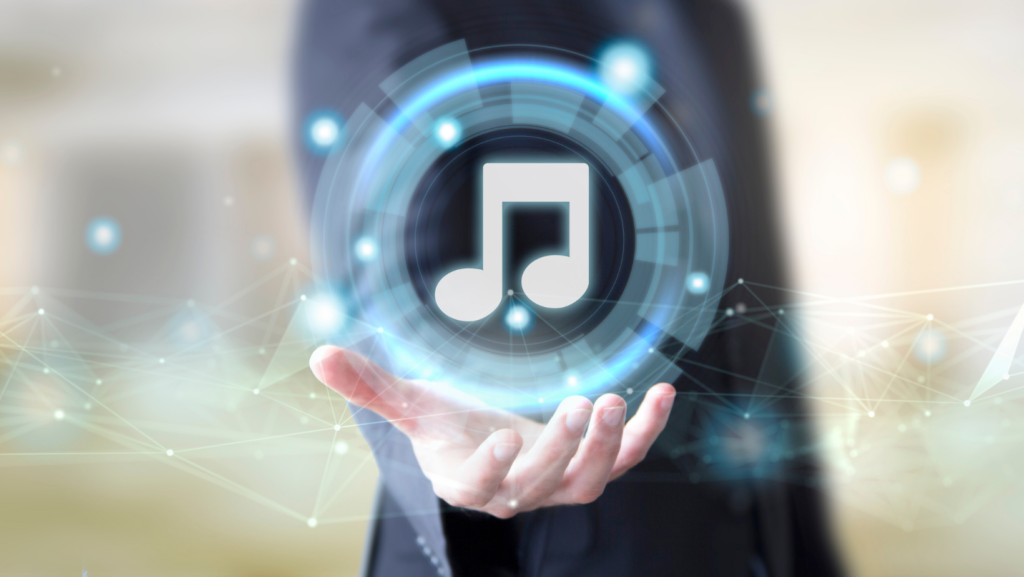In a world where technology is rapidly reshaping every aspect of our lives, it’s no surprise that it’s also revolutionizing the way we create and consume music.
Let’s embark on this rhythmic journey and discover the symphony of technology music.
Technology Music
From Analog to Digital: A History
 Dive into the modulations of technology music by taking a look back at history. In earlier centuries, musicians created their masterpieces with traditional instruments. But as the wheels of time turned, music, too, began to dance to the tune of technology.
Dive into the modulations of technology music by taking a look back at history. In earlier centuries, musicians created their masterpieces with traditional instruments. But as the wheels of time turned, music, too, began to dance to the tune of technology.
During the mid-20th century, analog technology ruled the music industry. With vinyl records, 8-tracks, and cassette tapes, they introduced the world to portable music. But, analog systems had their drawbacks. They degraded in quality over time and had hissing sounds that interfered with the actual music.
The late 20th century heralded the digital revolution. By converting sound waves into binary code, digital technology offered a cleaner, crisper sound than its analog predecessor. CD players, MP3 players, and iPods became the new medium for music distribution, profoundly altering not just the sound, but its delivery as well.
Key Technological Advances in Music Production
There have been critical developments in music technology over the past few decades. For starters, consider the birth of music-producing software like Ableton Live and Pro Tools. These applications, in some cases initially accessible to a select few due to their cost, now can be found on the average person’s laptop.
 Secondly, synthesizers have evolved over the years, effectively democratizing music production. Synths now come with a slew of features including integrated drum machines, sequencers, and advance modulation options. They’ve enabled even amateur musicians to create studio-quality sounds, significantly lowering the barrier to entry in the music industry.
Secondly, synthesizers have evolved over the years, effectively democratizing music production. Synths now come with a slew of features including integrated drum machines, sequencers, and advance modulation options. They’ve enabled even amateur musicians to create studio-quality sounds, significantly lowering the barrier to entry in the music industry.
Lastly, because of audio interfaces like the Universal Audio Apollo, musicians can now record high-quality music at home. Together with digital audio workstations and audio plugins, these interfaces have made it increasingly possible to create professional-level music without a recording studio.
In essence, technology has redefined the landscape of music, from its creation to its consumption. Its profound impact on the industry continues to create waves, shaping the future of music and carving out new possibilities for creators and consumers alike.
How Technology Has Changed Music Consumption
Enhancements in technology over the years haven’t merely influenced how technology music gets produced; they’ve also reshaped the way music gets consumed. This section outlines the effects of technology on music consumption, particularly the advent of streaming services and the impact of smart devices.
The Rise of Streaming Services
In the digital age, music has essentially become ubiquitous, with streaming services such as Spotify, Apple Music, and Tidal spearheading this shift. These platforms, which collectively boasted a staggering 358 million paid subscribers globally in 2020, provide users with instant access to millions of songs at the touch of a button.
Music streaming services offer vast libraries, personalized recommendations, curated playlists, and high-definition audio quality, factors that have played pivotal roles in their popularity. They’ve disrupted the traditional business models of music sales and radio airplay, emphasizing access to music over the ownership of it. Moreover, their analytics tools present musicians with vital data about their audience, altering the way artists engage with their fans.
Impact of Smart Devices on Listening Habits
 Smart devices, such as smartphones and smart speakers, have revolutionized our music listening habits. In 2019, for instance, approximately 3.24 billion people worldwide used a mobile device to listen to music online.
Smart devices, such as smartphones and smart speakers, have revolutionized our music listening habits. In 2019, for instance, approximately 3.24 billion people worldwide used a mobile device to listen to music online.
Smartphones, with their seamless integration of music streaming apps, have made music accessibility incredibly easy.
Technology music impact on the music industry is undeniable. Its evolution, from analog to digital, has transformed not only how music’s made but also how it’s consumed. AI and Machine Learning are the latest game-changers, offering innovative tools for composition and personalizing the listening experience. Yet, with these advancements come challenges. Copyright issues, debates over authenticity, and distribution of monetary value in the digital landscape are just a few of the hurdles that need tackling.

